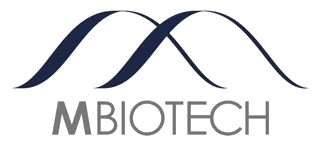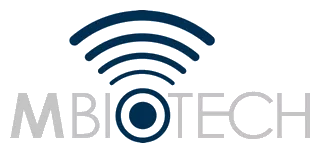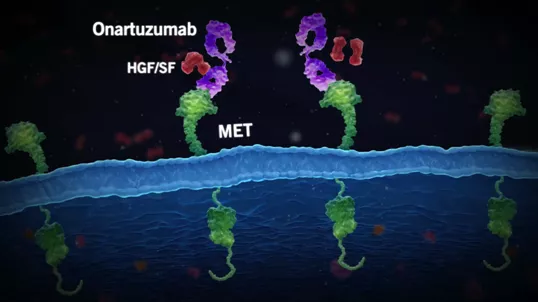
In collaboration with the Institute of Management & Innovation, MBiotech offers its students—and students across the IMI portfolio of professional graduate programs—a rich vein of electives from which to choose when completing their degree requirements. Whatever courses you select to take, all of our electives are designed to offer advanced learning opportunities at the interface of traditional disciplines, such as Business, Data Science and the Life Sciences, and serve as capstone experiences for our graduates as they launch their careers.


› How to Enrol in an Elective
Graduate students who wish to enroll in any of the courses on this page must—
| 1 › | Complete a Course Add/Drop Form, |
| 2 › | Have the completed form authorised by the Graduate Coordinator of your home department, and |
| 3 › | Submit the signed form via email to Julian Gaspini, MBiotech, julian.gaspini@utoronto.ca. |
Students CANNOT enrol themselves directly on Acorn/ROSI.
› Elective Course Descriptions
All of the electives offered by MBiotech are described in this section, except for the Work Term III { BioPh · DHT } elective.
BTC1860H › Generations of Advanced Medicine: Biologics in Therapy (GAMBiT)
Session: Winter
Instructors: Leigh Revers & Duncan Jones
Credits: 0·5 E
Open To: U of T Graduate Students, with priority given to the following programs—
› MBiotech Year 2 BioPh Stream
› Master of Management of Innovation
› Immunology
› Pharmacy
› Pharmacology & Toxicology

Course Description
In this course, we focus exclusively on the dominant role of biologic therapies in modern medicine. In 2020, six of the top 10 drugs by revenue were molecules of biologic origin, namely those manufactured primarily by biosynthetic rather than chemical means, with sales of the top selling therapy, the anti-TNFα monoclonal antibody adalimumab, falling just shy of the US$20 billion mark. The lucrative preeminence of biologics is set to continue, bolstered by the introduction of innovative molecular delivery strategies, such as antibody-targeted conjugates, fragments and fusions, as well as by the robust staying power of market leaders. The latter phenomenon is an inevitable consequence of the higher-than-usual regulatory hurdles faced by conventional generic manufacturers seeking to make biosimilars: intended copies of off-patent biologics that, having undergone a strict comparability exercise, are approved by regulatory agencies such as the EMA and the FDA.
This course will survey this changing landscape within an historical framework and will highlight critical scientific and process parameters unique to biologics, that set them apart from conventional small-molecule medicines, including their molecular architecture and mechanisms of action, manufacturing considerations, analytical and functional lot release assays and clinical trial design. We will explore some of the pitfalls by examining a roster of clinical case studies. The capacity of payers to afford these increasingly high-cost therapies in the face of current economic trends will be discussed.
The broad goals of the course are as follows—
› A detailed understanding of the complexities associated with biologic drugs;
› A broad familiarity with biologics manufacturing and its inherent variability;
› A critical understanding of the aspects of biosimilarity; and
› A familiarity with the clinical implications emerging from the use of biologics.
BTC1889H › Deep Learning in Health
Session: Winter
Instructors: Nicholas Mitsakakis
Credits: 0·5 E
Open To: U of T Graduate Students, with sufficient exposure to Machine Learning and R Language. Priority is given to the following programs—
› MBiotech Year 2 DHT Stream
› MBiotech Year 1 DHT Stream

Course Description
This is an advanced course in machine learning that is focused on the application of neural networks in a health context. The course assumes a strong foundation to create machine learning models in the coding language R. Basic foundations of neural networks are reviewed. Students will learn about the limitations and the appropriate use of neural networks by working on health and biological related data sets.
BTC1896H › Technology & Cognitive Performance
Session: Fall
Instructors: Jayson Parker
Credits: 0·5 E
Open To: U of T Graduate Students, with priority given to the following programs—
› MBiotech BioPh Stream
› MBiotech DHT Stream
› Psychology

Course Description
This new elective course looks at modern developments in neuroscience and cognitive psychology, that point to new uses of technology to enhance brain function. The course builds its foundation with a neuroanatomy primer, as well as an introduction to the cognitive neuroscience of daydreaming. How can technology be used to aid attention to avoid critical errors? How can better sleep and acts of creativity be supported from emerging technologies? In what way can video games be an aid and a burden to brain function? The major project for the course will explore digital biomarkers for cognitive performance.
BTC2110H › Structural Biology in Drug Development & Biotechnology
Session: Winter
Instructor: Mark Currie
Credits: 0·5 E
Open To: UofT Graduate Students, with priority given to the following programs—
› MBiotech Year 2 BioPh Stream
› Chemistry
› Biochemistry
› Pharmacology & Toxicology
› Medical Biophysics
Course Description
Biological, disease, and drug mechanisms are all determined by the 3-dimensional arrangement of atoms within biological macromolecules. Therefore, knowledge of molecular structure is fundamental to protein engineering and the development of new therapeutics and vaccines. This course will cover the application of structural biology methods to drug development and biotechnology. Students will be introduced to the modern tools of protein structure determination including cryo-electron microscopy, X-ray crystallography and NMR through lectures and group activities. Lectures will focus on theory, techniques, data collection, analysis, and interpretation, model building and validation, and the advantages and limitations of each method. The applications of these methods to the pharmaceutical and biotechnology industries including protein engineering, target selection and drugability, lead identification and optimisation, rational drug design and drug mechanism of action will be explored through group presentations, case studies and discussions.
BTC2120H › Decision Analytics in Business, Healthcare & Management
Session: Winter
Instructor: Ningyuan Chen
Credits: 0·5 E
Open To: UofT Graduate Students, with priority given to the following programs—
› MBiotech BioPh Stream
› MBiotech DHT Stream
› Master of Management & Innovation (MMI)
Course Description:
Data analysis and decision making are two core components in many industries. In this course, we will walk through major techniques in both components, including descriptive and exploratory data analysis, predictive analytics, causal inference, optimisation and simulation. The students are expected to conformably answer the following questions upon the completion of the course: how to visualize and present data to your clients or managers, how to predict patterns in the future from the historical data, how to measure the effectiveness of a policy, how to make best decisions under uncertainty based on the available information.
› IMI Electives
Students can also select from a number of electives offered by the Institute for Management and Innovation that allow them to focus on their individual areas of interest (science or management concentration). These selections need to be approved in advance by the MBiotech Program Director and the Chair/Director of the host department. Please note that availability of electives offered in MBiotech and other host graduate departments is subject to change each year, and dependent upon semester. Like all graduate programs at UofT, each department enrols their own program students in their electives first and, if there is space available, accepts other program students from other graduate programs, in their elective courses.
› MBiotech students are also eligible to take any graduate-level elective course offered at the University of Toronto, with Directors’ approval. Elective course specifics would be available from the host department and some elective courses require specific course prerequisites.
